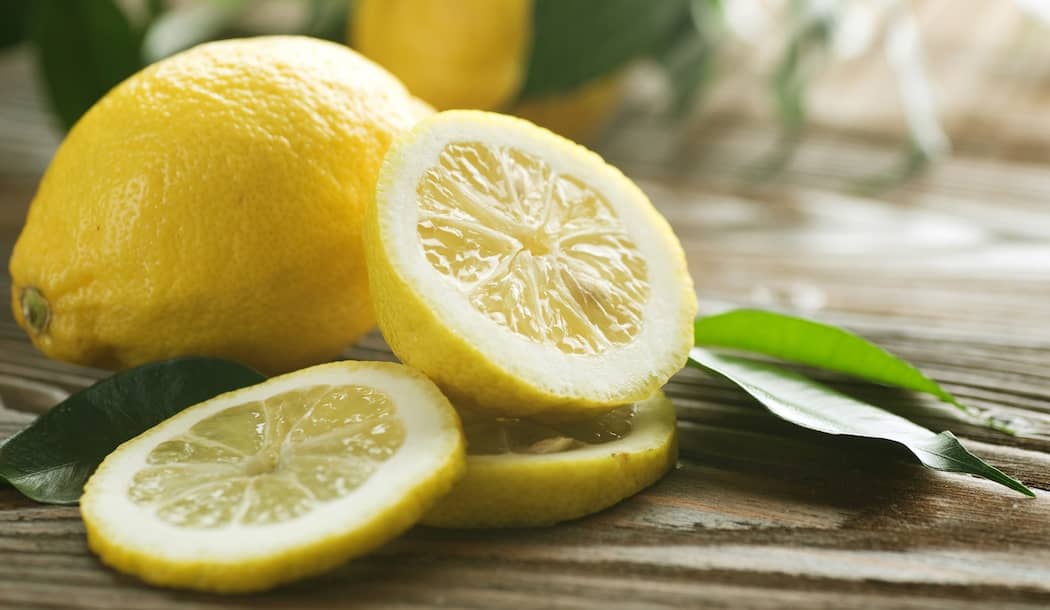
The poor lemon has an undeserved bad reputation (except when its sour flavor is offset with tons of sugar, or used in cleaning products). It’s popular as a flavoring or scent, but few among us want to bite into a raw lemon.
As far back as 1863, people with a tart disposition were called lemons. By 1909, American slang assigned the nickname “lemon” to anything considered worthless.
Even today, many states have so-called “lemon laws” to protect people from buying defective cars.
Yet the reality is that lemons can help protect you from debilitating diseases including skin cancer. And the benefits don’t just come from vitamin C, which everyone knows about.
The truth is, lemons are rich in healthy compounds, and some of the best ones reside in the skin, not the flesh. There’s growing evidence that the real power in a lemon comes from the peels.
Australian scientists not only discovered antioxidant compounds plus essential oils in lemon peels, they also logged those compounds and oils in such high quantities that we can now call lemon peels a potent cancer fighter.
The Australian team counted a whopping 22 anti-cancer substances in lemon peels, including citrus pectin, flavonoids, glycosides, and vitamin C. Flavonoids are capable of keeping cancer cells from dividing, which makes this substance both helpful in preventing cancer and useful in combating existing cancer cells.
In a 2001 study out of the University of Arizona, researchers reported, "Citrus peel in [hot, black] tea was found to have more than a 70% reduced risk for skin squamous cell carcinoma (SCC), whereas black tea alone meant a 40% reduction."
Their research suggested a dose-response relationship between the level of citrus peel in someone’s diet and their degree of risk for skin cancer.
It also seemed to matter whether the tea was hot or cold. In this particular study, the researchers found that iced drinks were less effective than the hot beverages because they were more likely to be diluted. That tallies with my experience. Most people make iced tea pretty weak.
The researchers found no connection between the consumption of the flesh of lemons and risk levels of squamous cell carcinoma. It’s the peels that do it. (I’ll just add that squamous cell skin cancer is not all that common, or life-threatening.)
In other studies, limonene (an oil also found in the rinds of oranges and grapefruits) has been shown helpful in the treatment of breast and colon cancers.
For a tiny fruit, its reach is mighty
Lemon peels are healthful in other ways beyond cancer, of course. The bio-flavonoids are known to help lower stress and reduce fatigue, and lemon peels have been shown to lower cholesterol, improve cardio function, and stabilize blood pressure.
Not only that, but lemon peel strengthens the immune system against common ailments like the flu, coughs, and other infections. It also supports digestive health, thanks to the fiber it provides.
The vitamin C and citric acid help cleanse blood vessels in the skin, in turn combating problems such as acne, wrinkles, and pigmentation in aging skin.
Palatable options for eating a lemon peel
The most specific recommendation I’ve found is to eat about 150 grams of lemon peel a day if you’re working to prevent cancer. That’s a lot – about five ounces. Honestly, I don’t think many people will do it.
But you can still reap some benefits from smaller amounts. You don’t have to aim for a clinical dose of every healthy food that comes along. Try these approaches:
- Get a zester and add lemon peel zest to your daily water or cup of tea
- Add lemon peel or zest to ice cubes using a vegetable peeler to make long strips
- Mix lemon peelings into your favorite savory foods, from butter to olive oil to seasoning salt
- Use lemon peels to season roasted vegetables or roasted chicken
- Add the peels to your favorite grains while they’re boiling
- Or toss half a lemon, peel and everything, into your next fruit or vegetable smoothie.
In addition, you can zest, grate, or peel a lemon and then take whatever part you don’t use right away and freeze it for later.
When shopping, buy organic lemons. If you were only eating the inside of the lemon, conventionally-grown lemons would be okay. But when you start eating the peel, you want to make sure no pesticides have come into contact with the fruit.
Best regards,

Lee Euler,
Publisher
References:
- “Citrus peel use is associated with reduced risk of squamous cell carcinoma of the skin.” By Hakim I.A., et al. Nutr Cancer. 2000;37(2):161-8.
- “Lemon.” Online etymology dictionary, retrieved 28 June2019.
- “Lemon Peels: The Cheapest Investment In Your Health?” By Jessica Cooper for Functional Food; retrieved 28 June 2019.
- “The golden peel of good health!” By Kavita Devgan for dailyO; 5 April 2019.
- “The miracle benefits of lemon peel to cancer treatment.” By: Oralie Smith for GNews Entertainment.